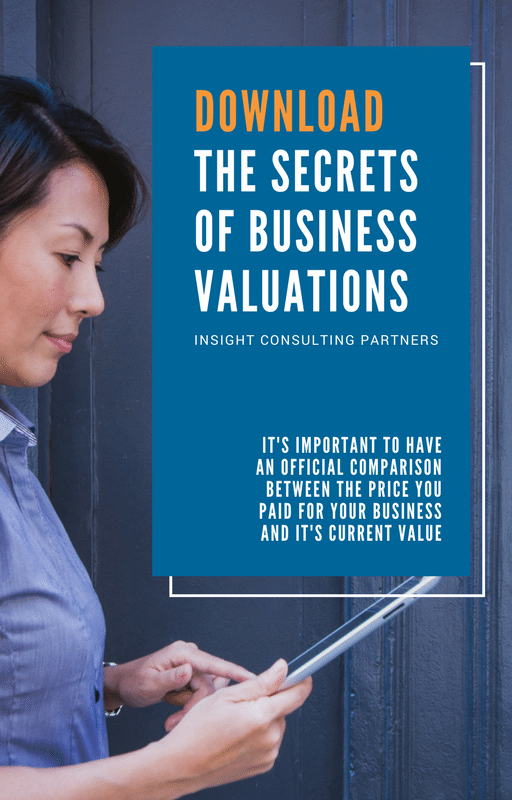Deciding to sell your business is a significant undertaking, and understanding its true value is crucial for securing a fair and satisfactory outcome. Valuation, the process of determining a business’s worth, plays a central role in this process. However, navigating the valuation process can be complex, and even seasoned entrepreneurs can fall prey to common mistakes. This blog aims to shed light on these pitfalls and equip you with the knowledge to avoid them, ensuring a successful and rewarding sale.
Mistake #1: Overestimating Your Business’s Value
As a business owner, you’ve poured your heart and soul into your enterprise, leading to a natural tendency to overestimate its value. This can be detrimental as it leads to an unrealistic asking price, deterring potential buyers and prolonging the selling process.
Avoidance Tips:
- Seek professional guidance: Engage a qualified business valuer to provide an objective assessment based on industry benchmarks and established valuation methodologies.
- Compare your business to similar companies: Analyze recent sale transactions of similar businesses in your industry to gain market insights and adjust your expectations accordingly.
- Focus on objective data: Don’t let emotional attachments or subjective factors cloud your judgment.
Mistake #2: Relying solely on Online Valuation Tools
While online valuation tools can provide a rough estimate, they often lack the depth and accuracy required for a reliable assessment. These tools often rely on generic formulas and may not consider industry-specific factors or unique characteristics of your business.
Avoidance Tips:
- Treat online valuations as indicative, not definitive: Use these tools as a starting point for further research and not as the sole basis for determining your asking price.
- Seek professional interpretation: Discuss the results of online valuations with a business valuer who can interpret them in the context of your specific business and industry.
- Consider alternative valuation approaches: Explore different valuation methods, such as the asset approach or the income approach, to gain a more comprehensive understanding of your business’s value.
Mistake #3: Ignoring Future Growth Potential
Valuing a business is not just about analyzing past performance; it’s also about assessing its future potential. Failing to consider future growth prospects can lead to undervaluing your business and missing out on potential gains.
Avoidance Tips:
- Develop a clear and compelling growth strategy: Define your future goals and present a realistic plan for achieving them. This demonstrates the potential of your business to attract interested buyers.
- Quantify your growth potential: Utilize data and projections to support your growth strategy and demonstrate the potential increase in future earnings.
- Highlight market trends and opportunities: Show how your business is well-positioned to capitalize on emerging trends and capture market share.
Mistake #4: Not Accounting for Risk and Uncertainty
Every business faces inherent risks and uncertainties, and these must be factored into the valuation process. Ignoring these risks can lead to an overvalued business, making it less attractive to potential buyers.
Avoidance Tips:
- Identify and assess key risks: Conduct a thorough risk assessment to identify potential threats to your business’s future success.
- Quantify the impact of risks: Analyze how these risks might affect your future earnings and adjust your valuation accordingly.
- Be transparent about risks: Disclose all relevant risks to potential buyers upfront to build trust and facilitate fair negotiations.
Mistake #5: Overlooking the Importance of Documentation
Accurate and thorough documentation is crucial for a credible and reliable valuation. Missing or incomplete records can cast doubt on your business’s financial health and deter potential buyers.
Avoidance Tips:
- Maintain up-to-date financial records: Ensure your financial statements, tax returns, and other relevant documents are accurate and readily available.
- Organize your documentation: Keep all documents well-organized and accessible for easy review by potential buyers and valuation professionals.
- Prepare a comprehensive business plan: This document should outline your business’s history, operations, future goals, and financial projections.
By avoiding these common mistakes, you can ensure that the valuation of your business is accurate, realistic, and attractive to potential buyers. This sets you on the path towards a successful and rewarding exit from your entrepreneurial journey. Remember, valuing a business is a complex process, and it’s always advisable to seek professional guidance from qualified business valuers and advisors. By investing in expertise, you can maximize your return and achieve a positive outcome for your business and yourself.
Read our other blog: 4 Things You Need to Know Before Buying a Business
Read this great article on Business.com: 4 Simple Steps to Valuing Your Small Business


